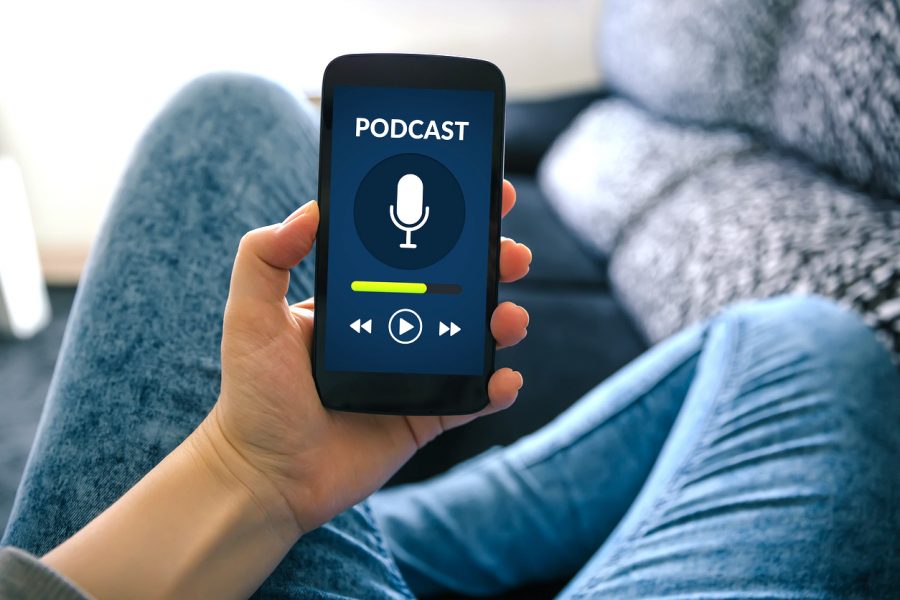
Twenty years ago, podcasts didn't exist. Fifteen years ago, podcasts were more or less entirely for the tech-savvy early adopter, listener and producer alike. Now, across large sections of society, podcasts have become everyone's favorite thing to listen to. Just yesterday the New York Times ran a piece headlined "Joe Rogan Is the New Mainstream Media" about the enormous success of the comedian, mixed martial arts enthusiast, and interviewer now popularly seen as the face of podcasting. "Even books on tape can require too much thinking," the article quotes Rogan as saying. But a podcast "doesn’t require that much thinking at all. You get captivated by the conversation," not least because "it’s really easy to listen to while you do other stuff."
Characteristically, Rogan downplays the strengths and importance of his medium. But requiring thinking and encouraging thinking are indeed two very different things, and in the latter aspect podcasts are now unsurpassed, compared to other internet media. Of course, much of the competition — listicles, cat videos, TikToks — may not seem especially strong, but podcasting's combination of the oft-praised "intimacy" of radio and freedom from the temporal or demographic limitations of traditional broadcast media has proven unexpectedly potent. In fact, humanity's craving for podcasts is such that, for more than a decade now, there have been too many to choose from. To help guide you through this embarrassment of audio riches, we've put together this list of the 135 best podcasts to enrich your mind, tailored just for you, the Open Culture reader.
As of this writing, Open Culture's podcast collection breaks down into twelve categories, from "art, design and fashion" and "music, TV, and film," to "history and philosophy," to "business and economy" and "personal development." You'll find shows you've probably heard of, like 99 Percent Invisible, The New Yorker Radio Hour, Freakonomics Radio, and This American Life. You may well also find show that you haven't: if you've never tuned into an episode of Entitled Opinions, The Truth, Philosophize This!, or Benjamen Walker's Theory of Everything, you owe it to yourself to sample a few today. And if you haven't yet heard Pretty Much Pop, a podcast curated by Open Culture, why not start with its debut discussion on "pop culture" versus "high culture," or its chat with yours truly on the film of Martin Scorsese? Finally, you will also find a slew of audio dramas--a reinvention of an old form that Orson Welles made famous during the 1930s--featuring the likes of Rami Malek, Catherine Keener, Tim Robbins and more. (See our post yesterday on that.)
Luckily, among the glories of podcasts is the fact that almost all of them are completely free, allowing you to fill even your most isolated days — and in this era of COVID-19, some of us have had more than a few — with a nonstop flow of stimulating conversation, rich storytelling, and boundary-pushing uses of speech, music, and sound. Given the popularity of podcasting, you almost certainly listen to a few shows we haven't yet included in our collection. Feel free to make recommendations in the comments below, even if — and perhaps especially if — they don't fit into the categories listed so far. And if your favorite subject has a Joe Rogan of its own, we certainly want to know who it is. Explore the collection here: The 135 Best Podcasts to Enrich Your Mind.
Related Content:
Audible Providing Free Audio Books to Kids & Teens: Introducing the New Service, Audible Stories
1,000 Free Audio Books: Download Great Books for Free
Based in Seoul, Colin Marshall writes and broadcasts on cities, language, and culture. His projects include the book The Stateless City: a Walk through 21st-Century Los Angeles and the video series The City in Cinema. Follow him on Twitter at @colinmarshall, on Facebook, or on Instagram.
The 135 Best Podcasts to Enrich Your Mind: An Introduction to Our New List is a post from: Open Culture. Follow us on Facebook, Twitter, and Google Plus, or get our Daily Email. And don't miss our big collections of Free Online Courses, Free Online Movies, Free eBooks, Free Audio Books, Free Foreign Language Lessons, and MOOCs.
from Open Culture https://ift.tt/2XtSxx4
via Ilumina
Comments
Post a Comment